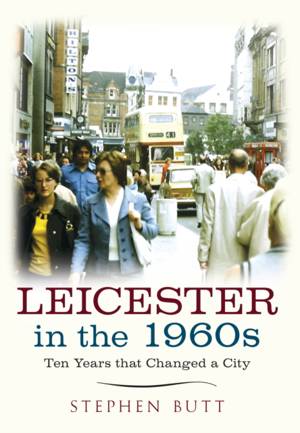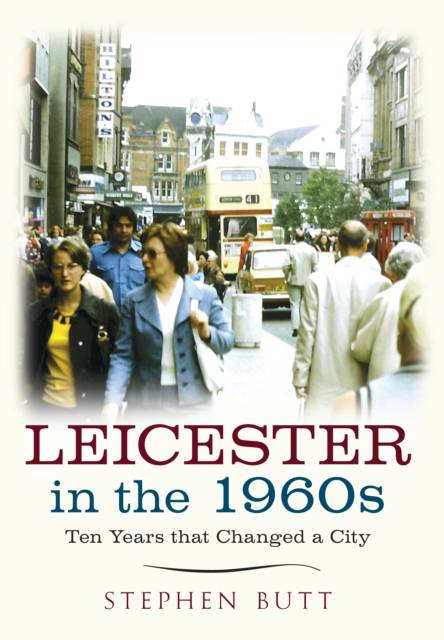
- Afhalen na 1 uur in een winkel met voorraad
- Gratis thuislevering in België vanaf € 30
- Ruim aanbod met 7 miljoen producten
- Afhalen na 1 uur in een winkel met voorraad
- Gratis thuislevering in België vanaf € 30
- Ruim aanbod met 7 miljoen producten
Zoeken
Omschrijving
For the people of Leicester, the 1960s was a decade of great social and economic change. It was to see a revolution in social attitudes reflected in the popular music of the time, in fashion, and in the print and broadcast media.Life changed for everyone. Railway stations closed as the motor vehicle grew in popularity. National Service ended, the pirate radio stations were scuppered, colour television became available, and the fashion garments manufactured by Leicester's giant textile companies were very different and sometimes extreme as hemlines rose dramatically. Changing attitudes led to social conflict between parents and children, teachers and pupils.Meanwhile, the teenagers danced at Il Rondo to The Who and Fleetwood Mac, and swooned to The Beatles at the De Montfort Hall. In Leicester in the 1960s, Stephen Butt charts the excitement and vibrancy of the 'Swinging Sixties' and reflects also on the economic and social problems that were just beneath the surface.
Specificaties
Betrokkenen
- Auteur(s):
- Uitgeverij:
Inhoud
- Aantal bladzijden:
- 96
- Taal:
- Engels
- Reeks:
Eigenschappen
- Productcode (EAN):
- 9781445640570
- Verschijningsdatum:
- 15/05/2015
- Uitvoering:
- Paperback
- Formaat:
- Trade paperback (VS)
- Afmetingen:
- 165 mm x 231 mm
- Gewicht:
- 294 g

Alleen bij Standaard Boekhandel
+ 44 punten op je klantenkaart van Standaard Boekhandel
Beoordelingen
We publiceren alleen reviews die voldoen aan de voorwaarden voor reviews. Bekijk onze voorwaarden voor reviews.











